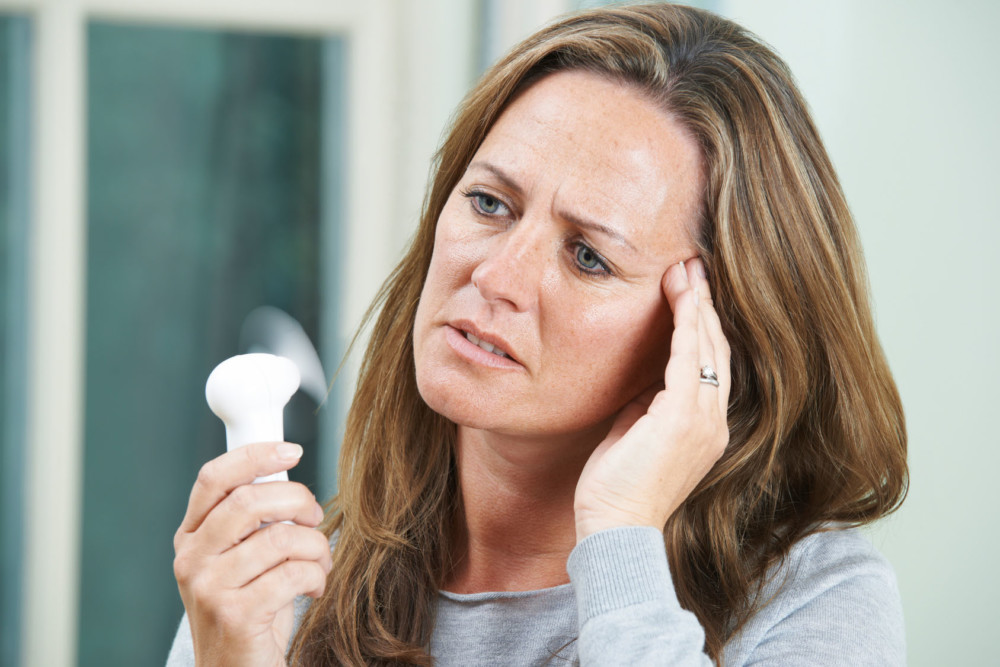From Mayo Clinic News Network
Mayo Clinic News Network
WWR Article Summary (tl;dr) Menopause typically occurs between 45 and 55. The menopausal transition, known as perimenopause, can begin four years before a woman’s final menstrual cycle. This article takes a look at what to expect and what to look out for.
buy filitra professional online nouvita.co.uk/wp-content/themes/twentynineteen/fonts/en/filitra-professional.html no prescription
Mayo Clinic News Network
Perimenopause symptoms occur as women’s bodies transition.
Cooler temperatures are on the way. Yet, your body’s thermostat is set on high. What’s the deal? For many middle-age women, menopause symptoms, such as hot flushes and sleep deprivation, can range from slightly irritating to downright debilitating.
According to the National Institute on Aging, menopause typically occurs between 45 and 55 as part of a normal aging process. The menopausal transition, known as perimenopause, can begin four years before a woman’s final menstrual cycle.
“During perimenopause, women may experience symptoms such as hot flushes, sleep disturbances, mood changes and vaginal dryness,” says Dr. Seanna Thompson, an OB-GYN at Mayo Clinic Health System.
Other physical symptoms include:
_ Headache
_ Vertigo (dizziness)
_ Itchy skin
_ Restless legs symptoms
_ Heart palpitations
_ Difficulty concentrating
_ Breast tenderness
_ Constipation
_ Bloating
_ Muscle and joint aches
EMOTIONAL CHANGES
Emotionally, women encounter fluctuations, as well. “Mood changes can include tearfulness, irritability, anxiety and even panic attacks,” says Thompson. “These symptoms can last four to five years on average from the first hot flush.”
Symptoms are typically most severe when a woman is still having periods, which can be heavier or lighter during this time. Eventually, she will skip periods for a few months until they stop altogether. A woman is considered postmenopausal if she has not had a period in more than a year.
EASING SYMPTOMS
Eating a balanced diet and exercising regularly can go a long way to ease most perimenopausal symptoms, according to Thompson. “Try to stay cool emotionally and physically, and avoid bright lights and hot beverages,” she says. “A chill pillow, cool sheets, moisture-wicking clothing or personal fan can also be helpful.”
Thompson offers these suggestions:
_ Adopt a healthy lifestyle to decrease cancer risk and improve cardiac health
_ Minimize alcohol use
_ Stop smoking immediately (Talk with your primary care provider to explore cessation options.)
“The truth is perimenopausal symptoms are very common; they’re typically mild for most women and usually diminish over the course of several years,” says Thompson. “However, if these symptoms are impacting your quality of life, see your health care provider to discuss your options.”
___
(Mayo Clinic News Network is your source for health news, advances in research and wellness tips.)














































































































































































































































































































































































